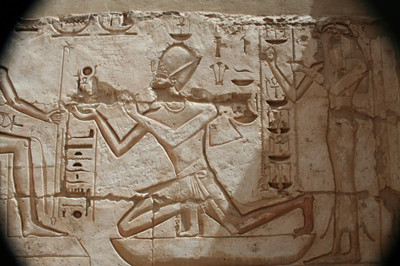There's a compelling showbiz mythology of the modern big city-the energy and the abundance, the proximity to culture and power, the streets that just might be paved with gold. We've seen it and we've loved it, on stage and on screen. But we all know that in reality big cities are noisy, potentially violent and alarmingly anonymous. We sometimes just can't cope with the sheer mass of people.
現代大城市簡直是創造了一種嚎頭十足的娛樂圈神話—能量充沛、物欲橫流,文化與權力高度集中,仿佛街道都可以是黃金鋪成的。舞臺上、屏幕上那一切的一切,我們對其“所見即所愛”。然而我們也深知,在現實中,大城市也充斥著嘈雜、潛在暴力和驚人匿名性。有時,我們簡直就是無法應付這樣龐大、高度集中的人群。
Apparently, if you look at how many numbers we're likely to store in our mobile phone, or how many names we're likely to list on a social networking site, it's very rare even for city dwellers to exceed a couple of hundred.
顯而易見的,假如你看一下通常我們手機上可能儲存的電話號碼,或者我們在社交網站上添加的好友名單,就會發現經常一個城市居民的社交圈人群很少會有超過幾百。
Social anthropologists delightedly point out that this is the size of the social group we'd have had to handle in a large Stone Age village. According to them, we're all still trying to cope with modern city life with a Stone Age social brain.
于是乎,社會學家得意洋洋地指出,早在石器時代的大村落里,幾百這個數字我們恰好可以應付得來,這就是當時一個社會群體的合理大小。
So how do you lead and control a city or a state where most people don't know each other, and you can only personally persuade a very small percentage of the inhabitants? It's the central theme of this week's programmes, and it's been the key political question for over five thousand years, since the growth of the world's first cities and states.
那么,你應該如何領導和控制一個城市與國家呢?絕大多數人都不認識彼比,你自己也只能親身說服比例非常小的居民。這是我們本周節日的中心主題;而且在超過五千年的人類歷史上,自從世界上第一座城市、第一個國家的出現,這也是一個關鍵的政治問題。
These grew up in the world's great fertile river valleys, the Euphrates, the Tigris and the Indus, but I want to start with the most famous river of them all, the Nile.
最早期的城市與國家崛起于世界上偉大的肥沃河谷里,幼發拉底河、底格里斯河、印度河等等,然而我想從這所有河流中最著名的尼羅河開始。
"There's no doubt that warfare and the coercive power of the king is very much at the heart of the regime from an early period." (Toby Wilkinson)
“毫無疑問,國王的戰爭力與威攝力自古以來就是制權的心臟要素。”托比•威爾金森說道。












